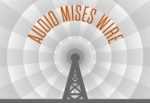In a much younger life, I was a newspaper reporter. A journalism-school graduate, I was going to help change the world, proclaiming truth and justice under my byline. The job didn’t pay much, but with overtime we got by, and it was a heady experience for this young general assignment reporter to rub shoulders with politicians and celebrities and even have some of them return his phone calls.Later in life, I had a long academic career in economics. I came to understand the mentality that has affected modern journalism for more than a century, and I believe that what we have seen in the past 25 years is the inevitable result of what happens when progressivism takes over.Twenty years ago, I wrote in a Mises Wire piece that modern media was a Progressive-era relic that was imploding, and that
Read More »2024-07-15














































